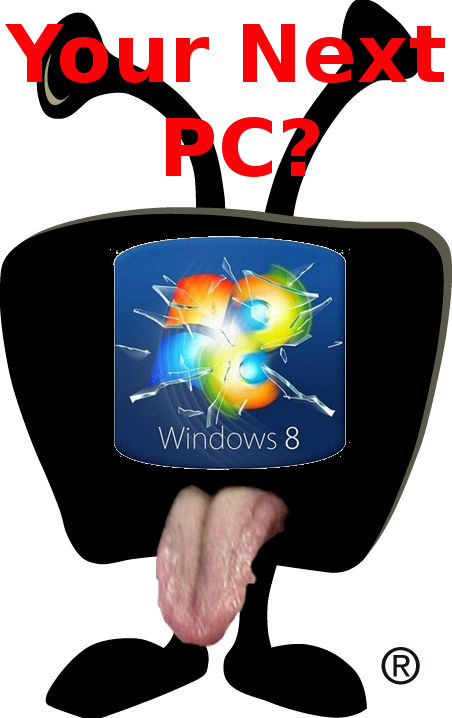
 [/caption]
[/caption]
The Windows press is doing damage control to quell a rising realization that the Microsoft demands and will have complete practical control of the next generation of Windows devices. Microsoft cleverly divulged key details over the past months to prevent people from understanding the implications. Free software advocates immediately understood the implications of signed code and some adopted a wait and see attitude believing OEMs would not be foolish enough to make all of their hardware Windows 8 logo compliant. Microsoft's App Store rules made the intentions clear for Windows users, so Microsoft boosters are Open Washing the program to keep users from bolting. Boosters celebrate a Microsoft limited choice of free software and Microsoft's cynical license compliance as a "Big win for Open Source." Microsoft's demands should trigger anti-trust investigation. Free software developers who still concern themselves with Windows should think carefully about the implications for their code. Windows users should migrate immediately because the PC ecosystem they grew up with is long gone.
The Windows Store will be the exclusive distribution channel for apps that use the Windows 8 "Metro" interface, which is designed for tablets and smartphones, but will also contain some traditional desktop apps. Microsoft wouldn't confirm if the kill switch applies only to Metro-style apps or if it covers any app in the store. "It's really the early days yet," said a spokesperson. "The terms of use applies to apps that people are creating now. More info will be shared as we get closer to release."
Microsoft's claim, of course, is ridiculous hair splitting. If Microsoft succeeds in Tivoizing all x86 and ARM hardware, only Microsoft signed code will run on Windows 8. Stopping any program from running will be as easy as revoking the keys no matter how they are installed.
Extreme Tech claims compliance terms in the App Store documentation are a "big win for Open Source." The article is titled, "Windows 8 Store will allow open source apps, unlike iOS and Mac App Stores" and says:
There may be another win for the open source movement today, as there has been some interesting legalese found in the recent publication of the Windows Store Application Developer Agreement. ... The section in question states that apps released under a license from the Open Source Initiative (GPL, Apache, etc.) can be distributed in the Windows Store. Further, it says that the OSI license will trump the Microsoft Standard Application License Terms, namely the the restriction on sharing applications.
The article offers some explanations that glorify Microsoft and belittle competitors but fail to make the common sense observation that Microsoft is forced to comply with the licenses used. They sink as low as to compare Microsoft's long running patent extortion[2] to a friendly game of chess. Here's another article that makes some of the same silly claims.
"Choice" and "Open" code are poor substitutes for software freedom and Tivoizing hardware defeats meaningful software freedom. Microsoft will be able to comfort their users with free software like browsers, image and audio editors. They will dutifully provide users with source code if the license requires as much but it is of no real value to the user because they can never run a modified version. The user gains none of the security, privacy or control of real software freedom from a single free program on top of a malicious OS. Users of Windows 8 will never have the tools to guard themselves.
Both articles are filled with Microsoft's language about "security" and "legal" reasons for revocation of code. This is a smoke screen. The only security signed code provides is financial security for Microsoft from a lock out of competition.
In the past, I've often warned free software developers that porting to Windows is a waste of time and energy better spent making gnu/linux and other really free software better. It was easy enough to point to all of the companies Microsoft ruined by technical sabotage and ask people why they would bother with such an anti-social company. People who ignored that warning should be asking themselves some serious questions about what extra efforts they will now be forced to go through. What process will Microsoft demand for approval? Will a partial distribution be worthwhile? Can they trust Microsoft to distribute code free of modification beyond selection?
Microsoft's attempt to Tivoize the computing world is far from assured. Vista and Windows 7 were both dismal failures [2] mostly because of Microsoft's insane anti-competitive and digital restrictions plans. Windows 8 is more of the same with even less to offer the user. Plans to lock out competition by signed code is a sign of desperation born of complete failure to compete on merit. The only real question is how many of their partners they will ruin before they fail. Apple, IBM and Google each have more to offer those partners.